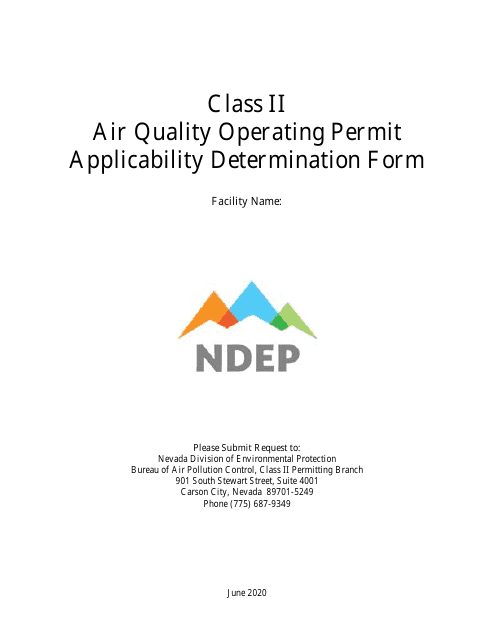Air Algérie Awarded NCAA Operating Permit: Key Details

Table of Contents
What is the NCAA Operating Permit and Why is it Important?
Before exploring the specifics of Air Algérie's permit, it's vital to understand the role of the NCAA (in this context, we'll assume this refers to a relevant national civil aviation authority, as the specific authority isn't specified). The NCAA is the regulatory body responsible for overseeing and ensuring the safety and compliance of air travel within its jurisdiction. It sets and enforces standards related to aircraft maintenance, pilot training, operational procedures, and airworthiness.
Obtaining an operating permit from the NCAA is essential for any airline seeking to conduct legal and safe air operations. This permit demonstrates compliance with stringent international aviation standards, affirming the airline's commitment to passenger safety and operational integrity. Without this permit, an airline cannot legally operate scheduled or chartered flights.
- Ensures compliance with international aviation standards (like ICAO standards).
- Allows scheduled and chartered flights to operate legally.
- Enhances passenger safety and confidence, boosting bookings.
- Improves Air Algérie’s international reputation and standing, attracting partnerships.
- Opens doors for new routes and partnerships, expanding its network.
Specific Details of Air Algérie's Awarded Permit
While precise details may not be publicly available immediately, the Air Algérie NCAA operating permit likely grants the airline authorization to operate specific routes, possibly within a designated region or globally, depending on the agreement. The permit will undoubtedly specify conditions and limitations, such as: permitted aircraft types, flight frequencies, and possibly operational restrictions related to specific airports or airspace. The official announcement of the permit award, if available from the relevant aviation authority's website or press release, should be consulted for precise details.
- Specific routes authorized (e.g., to major European or North American cities). This will be a crucial factor in determining future route expansion for Air Algérie.
- Frequency of flights allowed (e.g., daily, weekly flights). This element will influence the airline's flight schedules and capacity.
- Aircraft types permitted (e.g., Airbus A330, Boeing 737). This aspect depends on the airline's fleet and the authority's regulations.
- Operational restrictions (e.g., curfews at specific airports). These are often imposed to minimize noise pollution.
Impact on Air Algérie's Operations and Passengers
The Air Algérie NCAA operating permit has profound implications for both the airline's operations and its passengers. The most immediate impact will likely be the expansion of routes, offering passengers greater connectivity to new destinations. This will involve increased flight frequencies on existing routes and the launch of services to previously unserved markets.
- New destinations likely to be served (e.g., new cities in Europe or North America). This will increase Air Algérie's reach and appeal.
- Improved flight schedules for existing routes (e.g., more frequent flights). This improves convenience for passengers.
- Potential for enhanced passenger services (e.g., improved in-flight amenities). The airline might invest more in passenger experience.
- Expected changes in airfare pricing (potentially more competitive fares). Increased competition could lead to lower fares.
Future Implications and Outlook
The Air Algérie NCAA operating permit represents a long-term strategic advantage. This opens doors for enhanced collaborations and partnerships with other airlines. It can lead to code-sharing agreements, providing passengers with more comprehensive travel options. The wider Algerian aviation sector also benefits, with potential economic growth stimulated by increased tourism and trade.
- Potential for fleet expansion (to accommodate new routes and higher demand). This involves investment and fleet modernization.
- Opportunities for code-sharing agreements (with international carriers). This extends Air Algérie’s network further.
- Contribution to economic growth in Algeria (through tourism and trade). This has a significant economic impact.
- Increased competition in the market (potentially leading to innovation). A more competitive market can improve services.
Conclusion
The awarding of the Air Algérie NCAA operating permit is a momentous achievement, signifying a significant step forward for the airline. This permit ensures compliance with international standards, unlocks opportunities for route expansion, enhances the passenger experience, and strengthens Air Algérie's global competitiveness. To stay updated on the latest developments regarding the Air Algérie NCAA operating permit and its impact on flight routes and services, regularly check the official Air Algérie website and other relevant aviation news sources. Keep an eye out for announcements related to new destinations and improved flight options made possible by this pivotal Air Algérie NCAA operating permit.

Featured Posts
-
 Marjorie Taylor Greene Considering 2026 Senate Or Gubernatorial Run
May 27, 2025
Marjorie Taylor Greene Considering 2026 Senate Or Gubernatorial Run
May 27, 2025 -
 Post Romulus Choosing The Right Legacy Character For The Next Alien Movie
May 27, 2025
Post Romulus Choosing The Right Legacy Character For The Next Alien Movie
May 27, 2025 -
 Photo Ashton Kutcher And Mila Kunis Enjoy Beverly Hills After The Beauty Filming In Venice
May 27, 2025
Photo Ashton Kutcher And Mila Kunis Enjoy Beverly Hills After The Beauty Filming In Venice
May 27, 2025 -
 Exploring The Cinematic World Of Max Payne
May 27, 2025
Exploring The Cinematic World Of Max Payne
May 27, 2025 -
 Gwen Stefanis Unexpected Source Of Marital Success
May 27, 2025
Gwen Stefanis Unexpected Source Of Marital Success
May 27, 2025
